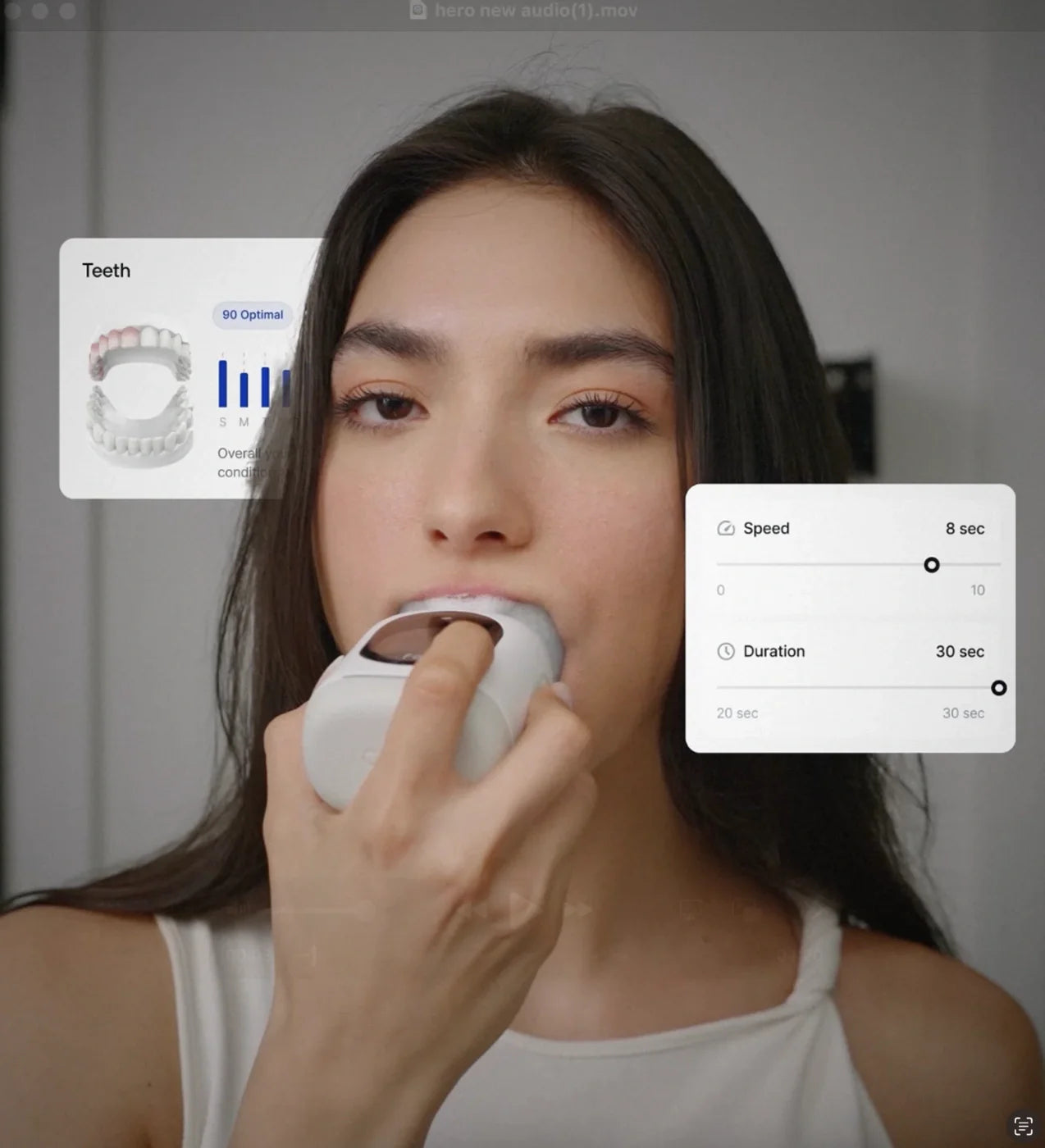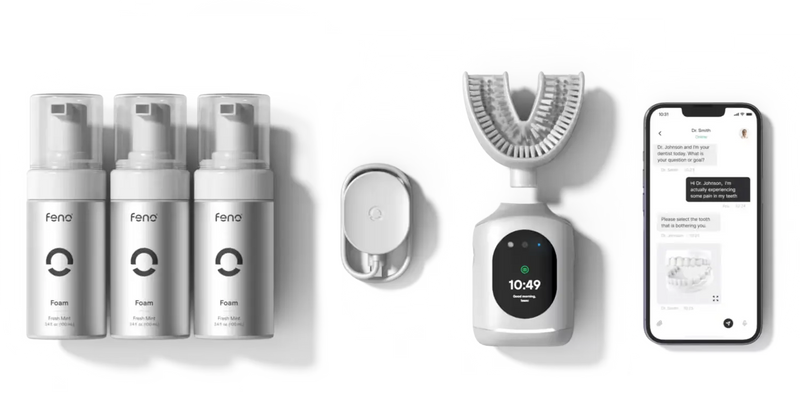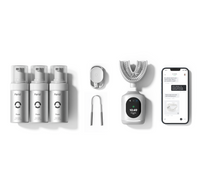
Essential Oral Hygiene Tips for People With Diabetes
Essential Takeaways
- Diabetes creates unique oral health challenges, but evidence-based care practices including electric toothbrushes, proper timing, and daily monitoring can significantly improve both oral health and support better blood sugar management.
Why Diabetes Changes Oral Health Requirements
Having diabetes means oral health needs extra attention. Research consistently shows that elevated glucose levels in saliva create an ideal environment for harmful bacteria to thrive, increasing the risk of tooth decay and gum disease. Additionally, diabetes can slow the body's natural healing process, meaning minor oral issues can escalate into serious problems if left unchecked.
(Frontiers of Endocrinology, 2024)
This connection works both ways - poor oral health can make blood sugar control more difficult, creating a cycle that affects overall diabetes management.
(Journal of Korean Medical Science, 2024)
What the Research Really Shows About Advanced Oral Care
Studies consistently demonstrate that powered toothbrushes outperform manual brushing for everyone, including people with diabetes. Systematic reviews show electric toothbrushes provide 11-21% better plaque removal compared to manual brushing, along with improved gum health outcomes.
(Cochrane Library, 2014)
While some marketing claims suggest improvements specific to diabetic populations, the core message remains clear: upgrading your oral care tools can make a meaningful difference in your dental health.
Evidence-Based Oral Care Tips for Diabetics
Choose Your Tools Wisely
Electric over manual: Research supports switching to an electric toothbrush for superior plaque removal and gum health. The consistent motion and timing features help ensure thorough cleaning every time.
Smart brushing innovations: New technologies like the Feno Smartbrush feature 18,000 precision bristles and a personalized-fit mouthpiece that cleans all teeth simultaneously in 20 seconds. This may be especially helpful for individuals with diabetes who struggle with dexterity or time-consuming routines.
Smart toothpaste selection: Look for fluoride toothpaste with antimicrobial properties. While products specifically "formulated for diabetics" aren't necessarily different from high-quality fluoride toothpastes, the antimicrobial component can help control bacterial growth.
Perfect Your Timing and Technique
Wait after eating: Contrary to the urge to brush immediately after meals, dental experts recommend waiting 30-60 minutes after eating, especially after consuming acidic foods or drinks. This protects your enamel while still maintaining good oral hygiene.
Brushing: Focus extra attention on the gum line where plaque and bacteria accumulate. This is especially crucial for people with diabetes who are at higher risk for gum disease.
Brush twice daily: Maintain consistent morning and evening routines to keep bacterial levels controlled throughout the day.
Additional Daily Practices
Choose alcohol-free mouthwash: Individuals with diabetes often experience dry mouth, and alcohol-based mouthwashes can worsen this condition. Alcohol-free options provide antimicrobial benefits without drying oral tissues.
Perform daily mouth checks: Examine your mouth daily for cuts, sores, unusual changes, or areas of concern. Early detection is crucial since healing may take longer with diabetes.
Stay hydrated: Adequate water intake helps maintain saliva flow, which naturally cleanses your mouth and helps control bacteria.
The Oral Health-Blood Sugar Connection
Maintaining excellent oral hygiene does more than protect your teeth and gums. It can support your overall diabetes management. Research shows that treating gum disease can lead to modest improvements in blood sugar control (HbA1c levels).
(Frontiers in Clinical Diabetes and Healthcare, 2025)
While good oral care alone won't dramatically transform your blood sugar management, it's an important piece of your comprehensive diabetes care plan that works alongside proper diet, exercise, and medication management.
When to See Your Dental Professional
Schedule dental cleanings and checkups every 6 months, or more frequently if recommended by a dentist. Those with diabetes should inform their dental team about their condition, current medications, and any concerns about healing or oral health changes.
Professional periodontal therapy may be recommended if gum disease develops, as treating gum inflammation can positively impact both oral health and blood sugar control.
Bottom Line: Upgrade Your Approach
Diabetes requires a more strategic approach to oral care, but the steps are straightforward and evidence-based. Investing in an electric toothbrush or advanced smart brushing technology like the Feno Smartbrush, choosing the right oral care products, timing your routine correctly, and staying vigilant with daily monitoring can significantly improve your oral health outcomes.
The combination of superior cleaning technology and consistent daily habits creates a powerful defense against the oral health challenges that diabetes presents. Whether you choose traditional electric brushes for proven 2-minute cleaning or explore innovative smart brushing options like the Feno Smartbrush, consistency in your daily routine is what matters most.
Remember: good oral hygiene is an investment in both your smile and your overall diabetes management. Small changes in your daily routine can yield meaningful long-term benefits for your health.
Always consult with healthcare providers and dental professionals for personalized advice regarding diabetes management and oral health care routines.

Feno Founders Edition Bundle
Advanced Oral Health in 20 Seconds with the Feno Smartbrush™
Get Yours Now!



